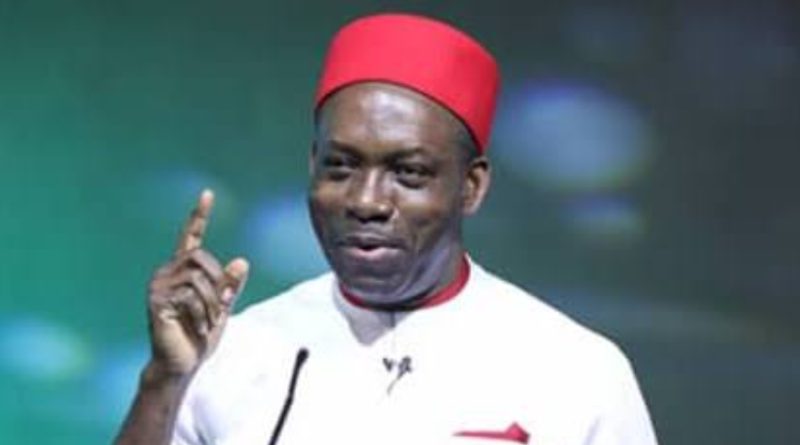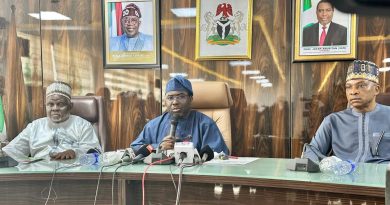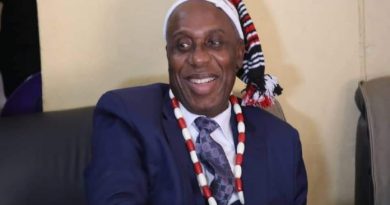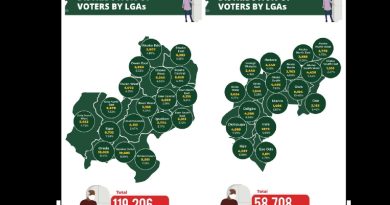Deconstructing Soludo’s explanation for rejecting World Bank Loan
By Chekwube Nzomiwu
I had earlier written an article seeking for an explanation from our Governor in Anambra State, Professor Charles Soludo on his decision to pull the State out of the World Bank NG-Cares loan for the 36 States of Nigeria and forwarded to the media, but events overtook it when I read a viral news from the Governor, explaining why he rejected the loan. He offered the explanation before the leadership of his deceased political rival, Senator Ifeanyi’s Uba’s political groups and some Nollywood practitioners, who toured the ongoing construction of Government House project in Awka.
The Governor told his visitors that when he assumed office and reviewed the terms and conditions of those loans, he realised that it was a bad deal for his people. He said he would have collected the loan, and leave the burden of repayment on the next generation but he does not have that kind of conscience. Hence, he said that Anambra State didn’t need the loan.
Speaking further, Soludo recalled that late last year, 438 million dollars was shared among 35 states in Nigeria, but Anambra was the only State that did not collect. The Governor said he pulled out of the arrangement because his administration needed not to continue mortgaging the State with such loans, stressing that while he requires funds to execute government projects, he refuses loans that would burden the state’s future generations.
Like the two previous occasions I heard Soludo talk about the rejection of the loan, he again shied away from pinpointing the “bad deal” in the loan, targeted at uplifting the poor and vulnerable in Anambra impacted by COVID-19 pandemic. Since he was not forthcoming, I decided to seek out the conditions of the loan myself and luckily, I was able to obtain a digital copy of the agreement signed by the Federal Government of Nigeria (FGN) and the World Bank’s International Development Association (IDA) on the NG –Cares facility with Credit Number 6803-NG. The agreement was signed on June 3, 2021 by the then-Minister of Finance, Budget and National Planning, Zainab Ahmed on behalf of the Federal Government, while the then-Acting Country Director of IDA, Cathleen Whimp, signed on behalf of the World Bank.
The IDA agreed to extend to the FGN a credit of 531.3 Million USD, as concessional financing for a programme to expand access to livelihood support and food security services, and grants for poor and vulnerable households and firms. The funds will be used for financing State Social Transfer (SST) programme to enhance consumption support to the aged, persons with disabilities, and chronically ill households. The funds are also expected to go into labour intensive public works programme (LIPW), to provide immediate employment opportunity in social sectors and to address the emergency constraints of loss of labour income among poor and vulnerable households as a result of COVID-19 pandemic, as well as improvement of public spaces and related stipends for the beneficiaries.
The programme equally comprises grants to support livelihood and soft skills, training and one-off payments to economically active and self-employed youth and women in Nigeria and provision of basic community-driven services in the sectors of health, education, nutrition, water and sanitation at the community level for the poorest communities in selected local government areas through micro-financing. The programme will also support increased food production, labour-intensive agricultural infrastructure, provision of agricultural assets for production and mitigation of food loss and waste and improvement of water and sanitation services in wet markets to reduce the risk of COVID-19 spread. In addition, the programme aims at facilitating and enhancing capabilities of Medium and Small Enterprises through the provision of matching grants, operational support grants and IT enhancement grants.
According to the agreement, the charges on the loan include a maximum commitment charge of one half of one percent (1/2 of 1percent) per annum on the unwithdrawn financing balance and service charge of three quarters of one percent (3/4 of 1 percent) per annum on the withdrawn credit balance. The interest rate is one and a quarter percent (1.25 percent) per annum on withdrawn credit balance. The agreement also spelt out the implementation arrangement, additional implementation agreements and the repayment schedule, among others, which space may not permit us to mention here.
After going through the agreement, I asked myself; if the other 35 States could cope with the conditions of the loan, why can’t Anambra State? One Governor cannot be wiser than 35 Governors. I say this with utmost respect to Professor Soludo, knowing full well his background as a Professor of Economics and antecedents as a consultant to the World Bank, former Chief Economic Adviser to the President, one-time Governor of Central Bank of Nigeria (CBN) and de facto Minister of National Planning.
Please, let us not forget that Soludo was a member of the Economic Advisory Council (EAC) when the Federal Government designed the NG-Cares Programme under its Economic Sustainability Plan coordinated under the office of then-Vice President, Professor Yemi Osinbajo. So, if the conditions of the loan were that bad, why did Professor Soludo, a member of the EAC, not advise the Federal Government against obtaining the facility from the World Bank? Why did he wait until he became the Governor of Anambra State to reject the loan at the detriment of millions of the poor and vulnerable people in Anambra State, who unlike their counterparts in the other 35 states, would not benefit from the loan?
It is even worse that the same poor and vulnerable people in Anambra State who were deprived of the benefits of the NG-Cares for reasons best known to Governor Soludo, are today being subjected to multiple taxation by his administration in a desperate bid to shore up the revenue generated internally in the State. Some of them have sustained life threatening injuries in the hands of Soludo’s ruthless boys for not paying one levy or the other.
COVID-19 pandemic occurred globally. The lockdowns and shutdowns affected the poor and vulnerable in every part of Nigeria, including Anambra State. Hence, I do not see the reason why Anambra State should not partake in the disbursement of the World Bank loan meant for the 36 States of the Federation. I think it is an error of judgment for Soludo to pull the State out of the disbursement of the loan.
Soludo’s counterpart in Enugu State, Peter Mba, is partnering with NG-Cares to reduce poverty in his State. In September, Mba announced that his government had embarked on the distribution of agricultural inputs, assets and grants worth over N4.6 billion to farmers, communities and start-ups in Enugu State. Similarly, in a groundbreaking move, Abia State empowered 6,500 SMEs with N5.9 billion grants in the NG-Cares initiative, to aid individuals and businesses impacted by the COVID-19 pandemic. Why should the case of Anambra State be different? One Governor cannot be wiser than the other 35 Governors who allowed their States to partake in the sharing of the loan.
By the way, who did Soludo consult before taking the decision to pull Anambra out of the disbursement of the loan? Your Excellency, if of all the 36 States of Nigeria, Anambra was the only State that pulled out of the loan because of the conditions, you have done great disservice to the State. What it means is that you do not have a vision for Anambra State, which you promised to transform to Dubai-Taiwan while campaigning for the office of the Governor.
The New Government House you are constructing, as laudable as it may appear, cannot transform Anambra into Dubai-Taiwan. The economies of Dubai, Taiwan and other Asian Tigers are flourishing, not because they invested massively on the construction of new Government Houses, but as a result of thriving Medium and Small Enterprises. It is such enterprises impacted by COVID-19 in Nigeria that NG-Cares seeks to support. I expect Governor Soludo as an economist to know better.
Delivering his inaugural speech, the new Prime Minister of Canada, Mark Carney, an Economist like Professor Soludo, said: “I do care about the economy, not because I am an economist, but because of the people.” Soludo should also care about the people. The poor and vulnerable people impacted by COVID-19 in Anambra State should not be abandoned to suffer under the prevailing harsh economic conditions.
In conclusion, Governor Soludo should know that the future he doesn’t want to mortgage starts today. I heard the Minister of Budget and Economic Planning, Senator Atiku Bagudu highlight that undisbursed World Bank loans were potentially a major source of funding for the country’s 2024 budget. The implication of Bagudu’s statement is that the money refused by Anambra State would go into implementation the 2024 national budget, which has been extended to June 2025 by the National Assembly. Who is the loser here? I leave the question to my readers to answer.
Dr. Nzomiwu, an indigene of Ozubulu in Ekwusigo Local Government Area of Anambra State, wrote via chekmma@yahoo.com




